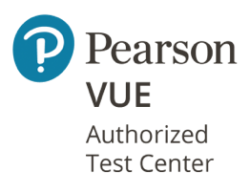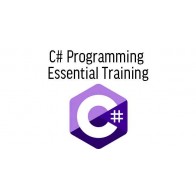Course Details
Topic 1: Introduction to Java
- Editors and Tools
- Basic Syntax
- Language Syntax Properties
- Variables & Datatypes & Literals
- Operators
- Autoboxing and Unboxing
- Enums
- Arrays
- Strings
- Date and Time
Topic 2: Control Flow
- Statements, Expressions & Blocks
- Flow Control statements
- Ternary Operator
- Loops statements
- Nested Loops statements
- Loop Control Statements
Topic 3: Object Oriented Programming
- Scope
- Classes & Object
- Methods
- Constructors
- Access Modifiers
- ‘this’ keyword
- Passing by Value
- Encapsulation
- Inheritance
- Abstraction
- Interface
- Polymorphism
Topic 4: Data Structures
- Static & Dynamic Array
- N-Dimensional Array
- Basic Operations on Arrays
- Basic operations on Linked List
- Arrays & Linked List
- Types of Linked List
- Stacks & Queues
Topic 5: Developing an API
- Design the API architecture
- Develop the API
- Test the API
- Monitor the API and iterate on feedback
Topic 6: Debugging Java Applications
- What is Debugging?
- Examining the code
- Setting breakpoints
- Running the program in debug mode
- Analyze the program state
- Step through the program
- Stopping the debugging session and rerun the program
Topic 7: Exception Handling
- Exception keywords
- Nested exceptions
- Throwing exceptions
- Exception propagation
- Throws clause
- Custom exceptions
- Chaining exceptions
- Exceptions with polymorphism
Topic 8: File Operations
- File paths
- File metadata
- Creating regular and temporary files
- The try-with-resources statement
- Checking if a File or Directory exists
- File access modes
- Reading from and writing to files
Topic 9: Using Generics
- Generic types
- Bounded type parameters
- Inheritance and subtypes
- Type inference
- Wildcards
- Restrictions
Topic 10: Multi-threading
- Life cycle of a thread
- Synchronization
- Issues with Multi-threading
- Interrupting Threads
Final Assessment
- Written Assessment - Short Answer Questions (WA-SAQ)
- Practical Performance (PP)
Course Info
Promotion Code
Promo or discount cannot be applied to WSQ courses
Minimum Entry Requirement
Knowledge and Skills
- Able to operate using computer functions with minimum Computer Literacy Level 2 based on ICAS Computer Skills Assessment Framework
- Minimum 3 GCE ‘O’ Levels Passes including English or WPL Level 5 (Average of Reading, Listening, Speaking & Writing Scores)
Attitude
- Positive Learning Attitude
- Enthusiastic Learner
Experience
- Minimum of 1 year of working experience.
- Minimum 18 years old
Minimum Software/Hardware Requirement
Software:
Download and Install the following software
Hardware: Window or Mac Laptops
About Progressive Wage Model (PWM)
The Progressive Wage Model (PWM) helps to increase wages of workers through upgrading skills and improving productivity.
Employers must ensure that their Singapore citizen and PR workers meet the PWM training requirements of attaining at least 1 Workforce Skills Qualification (WSQ) Statement of Attainment, out of the list of approved WSQ training modules.
For more information on PWM, please visit MOM site.
Funding Eligility Criteria
| Individual Sponsored Trainee | Employer Sponsored Trainee |
|
|
|
SkillsFuture Credit:
PSEA:
|
Absentee Payroll (AP) Funding:
SFEC:
|
Steps to Apply Skills Future Claim
- The staff will send you an invoice with the fee breakdown.
- Login to the MySkillsFuture portal, select the course you’re enrolling on and enter the course date and schedule.
- Enter the course fee payable by you (including GST) and enter the amount of credit to claim.
- Upload your invoice and click ‘Submit’
SkillsFuture Level-Up Program
The SkillsFuture Level-Up Programme provides greater structural support for mid-career Singaporeans aged 40 years and above to pursue a substantive skills reboot and stay relevant in a changing economy. For more information, visit SkillsFuture Level-Up Programme
Get Additional Course Fee Support Up to $500 under UTAP
The Union Training Assistance Programme (UTAP) is a training benefit provided to NTUC Union Members with an objective of encouraging them to upgrade with skills training. It is provided to minimize the training cost. If you are a NTUC Union Member then you can get 50% funding (capped at $500 per year) under Union Training Assistance Programme (UTAP).
For more information visit NTUC U Portal – Union Training Assistance Program (UTAP)
Steps to Apply UTAP
- Log in to your U Portal account to submit your UTAP application upon completion of the course.
Note
- SSG subsidy is available for Singapore Citizens, Permanent Residents, and Corporates.
- All Singaporeans aged 25 and above can use their SkillsFuture Credit to pay. For more details, visit www.skillsfuture.gov.sg/credit
- An unfunded course fee can be claimed via SkillsFuture Credit or paid in cash.
- UTAP funding for NTUC Union Members is capped at $250 for 39 years and below and at $500 for 40 years and above.
- UTAP support amount will be paid to training provider first and claimed after end of class by learner.
Appeal Process
- The candidate has the right to disagree with the assessment decision made by the assessor.
- When giving feedback to the candidate, the assessor must check with the candidate if he agrees with the assessment outcome.
- If the candidate agrees with the assessment outcome, the assessor & the candidate must sign the Assessment Summary Record.
- If the candidate disagrees with the assessment outcome, he/she should not sign in the Assessment Summary Record.
- If the candidate intends to appeal the decision, he/she should first discuss the matter with the assessor/assessment manager.
- If the candidate is still not satisfied with the decision, the candidate must notify the assessor of the decision to appeal. The assessor will reflect the candidate’s intention in the Feedback Section of the Assessment Summary Record.
- The assessor will notify the assessor manager about the candidate’s intention to lodge an appeal.
- The candidate must lodge the appeal within 7 days, giving reasons for appeal
- The assessor can help the candidate with writing and lodging the appeal.
- he assessment manager will collect information from the candidate & assessor and give a final decision.
- A record of the appeal and any subsequent actions and findings will be made.
- An Assessment Appeal Panel will be formed to review and give a decision.
- The outcome of the appeal will be made known to the candidate within 2 weeks from the date the appeal was lodged.
- The decision of the Assessment Appeal Panel is final and no further appeal will be entertained.
- Please click the link below to fill up the Candidates Appeal Form.
Job Roles
- Java Developer
- Software Engineer
- Application Developer
- Systems Analyst
- Backend Developer
- API Developer
- Data Structure Engineer
- Debugging Specialist
- Exception Handling Expert
- Software Architect
- Software Designer
- Full Stack Developer
- DevOps Engineer
- Quality Assurance Engineer
- Technical Lead
- Software Consultant
- Software Documentation Writer
- Technical Support Specialist
- Database Developer
- IT Project Manager
Trainers
Angel Koh: Angel Koh has over 15 years experience with the maritime and defence industry building information systems for full scale development programs; working with a myriad of programming and computing languages and tools, ranging from programming languages like C# and Java to computing languages like Octave and ArcGis. His specialization is in the field of data fusion and mapping. He is always passionate to adopt new technologies and skills to add to his repertoire of computer knowledge.
In his free time, he likes to tinker with his RigidBot 3D printer, building simple household objects with Adobe 123D Design and OpenSCAD.
Customer Reviews (2)
- Will Recommend Review by Course Participant/Trainee
-
. (Posted on 10/10/2019)1. Do you find the course meet your expectation? 2. Do you find the trainer knowledgeable in this subject? 3. How do you find the training environment - Will Recommend Review by Course Participant/Trainee
-
More examples of neural nets for time series (Posted on 8/15/2019)1. Do you find the course meet your expectation? 2. Do you find the trainer knowledgeable in this subject? 3. How do you find the training environment


























